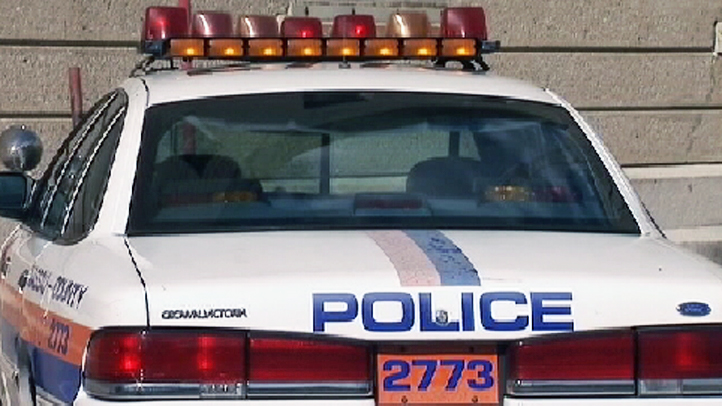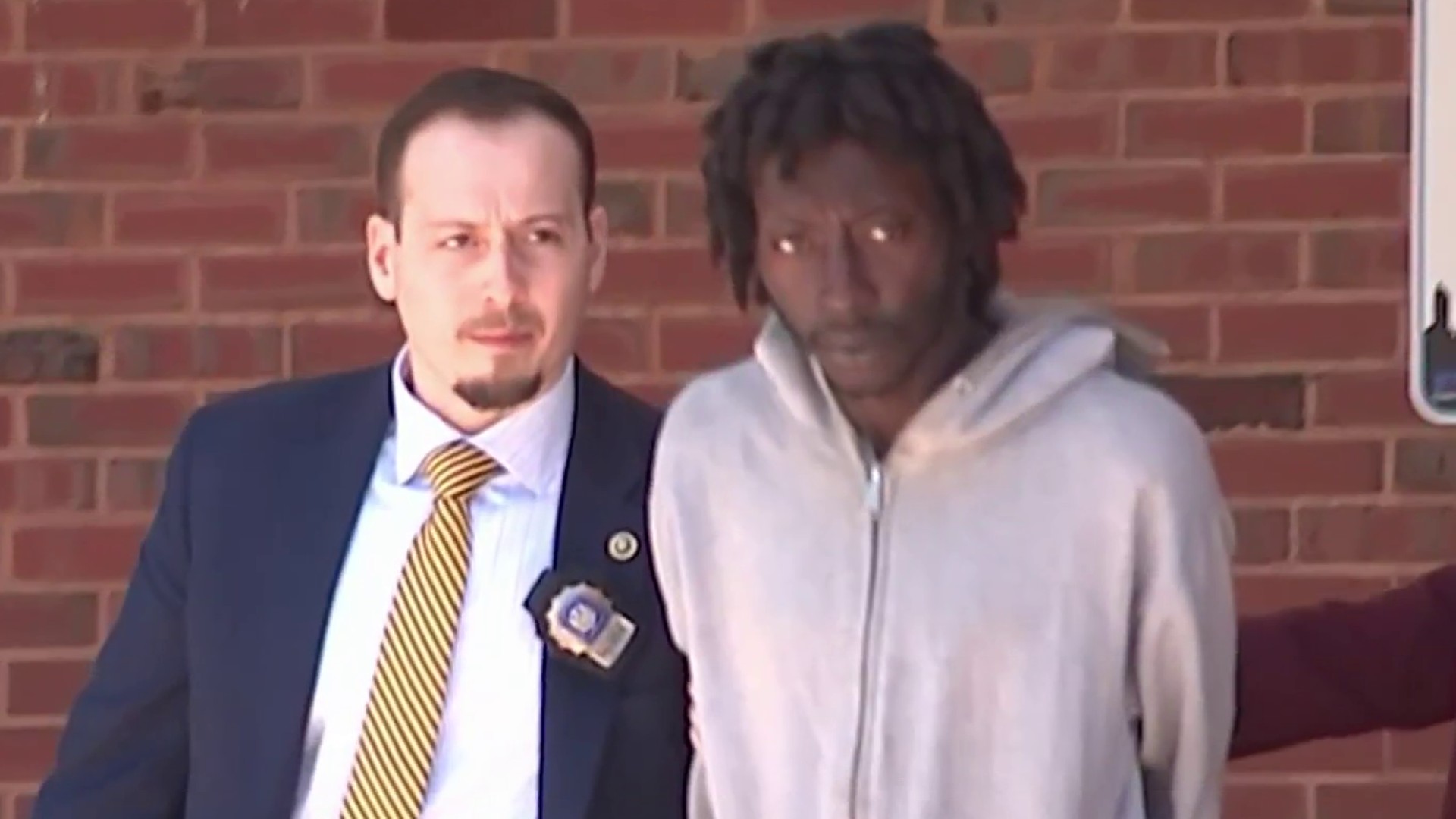In the wake of Sept. 11, police and firefighters called on Washington to help in preventing the type of communications chaos that occurred with deadly results during the terrorist attacks on the World Trade Center.
They even set an informal goal for action: the 10th anniversary of the tragedy.
But with that milestone just a month away, the fixes seem out of reach, amid sharp differences among lawmakers and intense lobbying by the broadcasting and wireless industries. It doesn’t help that Congress left the matter unresolved as it departed for its annual August recess.
“Not only are we going to be disappointed, we’re going to be down in D.C., walking the halls of the House and the Senate and letting them know how disappointed we are,” said John Feal, a demolition worker who worked at ground zero and started the Fealgood Foundation, which pushed for the 9/11 health bill. He was in Washington last month to urge passage of legislation improving communications for first-responders.
“Cops and firefighters are given tools every day to do their jobs. But those tools are no good unless they have the proper communications,” he said.
The problem – on that day, and now – is that public safety radio communications are inefficient, and some first responders can’t actually communicate with each other because of device and network lapses. The 9/11 Commission even identified those troubles in its 2004 report and urged Congress to back legislation to help.
It’s not as if Congress hasn’t tried. Republicans and Democrats alike agree that first-responders need a wireless, high-speed data network that could let public safety agencies communicate and even share building schematics in the field. Yet a decade after the attacks, Congress still can’t seem to decide how to set aside a chunk of the nation’s airwaves for such a network.
House and Senate panels have taken different approaches, amid a heavy lobbying war between powerful TV broadcasters being pushed to give up some airwaves for compensation and wireless companies that want to develop mobile technologies. The Obama administration has intervened on behalf of public safety, advocating the allotment of a prized band of airwaves and funding to build out a sophisticated network.
Senate Majority Leader Harry Reid (D-Nev.) even tried to include a provision for a public safety network in his original bill raising the debt ceiling.
In the end, Reid’s proposal was dropped during partisan negotiations, and lawmakers have since left Washington for the recess. When they return, they may have as few as five legislative days before Sept. 11 — a timeline that has even staunch advocates of a public safety network pessimistic.
That includes Sen. Jay Rockefeller (D-W.Va.), chairman of the Senate Commerce Committee. He was perhaps the most vocal proponent in Congress of delivering a legislative promise to the public safety community in time for the 10th anniversary.
When asked last week if Congress could still act by Sept. 11, Rockefeller tersely told POLITICO after the measure was yanked from the debt ceiling bill, “Not the way it is now.”
NYPD Deputy Chief Charles Dowd told POLITICO the absence of action before Sept. 11 brings with it “a certain amount of disappointment.”
“We’re going to be intense on this issue, if not more intense,” Dowd added, “if it’s not done by 9/11.”
Supporters, however, may find more solace in November: That’s when the newly created, 12-member panel, tasked as part of the debt debacle with identifying new spending cuts, will have to submit its plan for deficit reduction to Congress.
It is not yet clear who will be appointed to that supercommittee, which Congress authorized as part of a compromise raising the debt ceiling. But the law would allow other congressional committees to submit ideas for cuts and revenue raisers in October — creating what some stakeholders see as another outlet by which to move reform of the nation’s limited airwaves, including the public safety network.
“It’s a no-brainer to include spectrum in the next round. It’s a way to raise revenue without raising taxes,” one Senate Commerce Committee aide told POLITICO.
A new deadline, however, may not be enough to mend old policy divisions.
Long stumping Congress has been the fate of a chunk of spectrum known as the "D-Block" — a valuable piece of communications real estate because of the ease at which those airwaves provide good reception even in dense buildings.
Local
Congress previously slated that spectrum for auction to the private sector to bring in new federal revenue — companies such as AT&T, Verizon, T-Mobile or Sprint are seen as potential bidders. But first-responders covet precisely those airwaves for their data network.
A bipartisan bill that cleared Rockefeller’s committee would turn over the D-Block to public safety and cancel the auction of those airwaves. It would pay for the network by auctioning other spectrum volunteered by broadcasters — an arrangement that would cover the network’s price tag and still leave more than $6 billion for deficit reduction.
The bill, co-sponsored by top panel Republican Sen. Kay Bailey Hutchison of Texas, faces a cadre of influential chamber Republicans who feel it delivers too little in deficit savings. One Senate Republican aide predicted to POLITICO last week that the cost concerns among conservatives remain prevalent, setting up a potential floor fight if the bill ever reaches the Senate floor.
Meanwhile, Republicans on the House Energy and Commerce Committee have taken a completely different road.
Their plan, still in draft form, would allot a different set of spectrum for public safety use. Meanwhile, the House GOP proposal would still permit the D-Block to be auctioned to a private carrier — a sale long expected to generate as much as $3 billion in revenue.
House Democrats, however, find that approach lacking, though bipartisan negotiations continue. And the House does have Republicans who support giving D-Block to public safety agencies — namely, Rep. Pete King (R-N.Y.), who has his own reallocation bill.
Still, what remains is a policy battle over more than just granular details, and one that has continued almost unabated for months — if not years. Now, few stakeholders are brazen enough to claim Congress can hatch a deal in the few days that remain between the end of August recess and Sept. 11, 2011.
With the 10-year anniversary likely out of reach, a Senate aide told POLITICO last week discussions have already taken place involving Rockefeller, Hutchison and Sens. John McCain (R-Ariz.) and Joe Lieberman (I-Conn.) about the next steps. The members, who all support reallocating D-Block to public safety, have already pegged the next round in the deficit debate as a path forward on spectrum reform.
Of course, some in Congress are still optimistic the Sept. 11 target is achievable. A spokesman for Rep. Henry Waxman (D-Calif.), ranking member of the House Energy and Commerce Committee, said the congressman is “hopeful” albeit “concerned that time is going by.”
For others, the Sept. 11 deadline was important, but not critical. Rep. Greg Walden (R-Ore.), chairman of the House’s top telecom panel, told POLITICO in July that Republicans “were respectful of” the so-called deadline, but sought primarily to “get it right this time.”
Still, public safety groups are planning to take their frustrations to Washington in the coming weeks.
“My biggest concern is that it drags it out, and that this issue that’s so critical to protecting Americans gets lost in the discussion,” said Dick Mirgon, immediate past president of the Association of Public Safety Communication Officials. His organization supports reallocating the D-Block, and, specifically, the Rockefeller-Hutchison bill.
“We’re not going away. If it doesn’t get done by Sept. 11, then we will continue to pursue this effort as vigorously as we have,” Mirgon said.
This article first appeared on POLITICO Pro at 5:36 a.m. on August 5, 2011.




